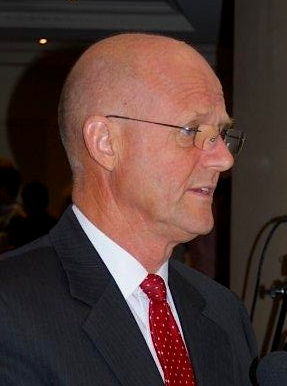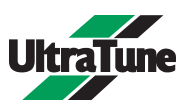Related Research Articles

A van is a type of road vehicle used for transporting goods or people. Depending on the type of van, it can be bigger or smaller than a pickup truck and SUV, and bigger than a common car. There is some variation in the scope of the word across the different English-speaking countries. The smallest vans, microvans, are used for transporting either goods or people in tiny quantities. Mini MPVs, compact MPVs, and MPVs are all small vans usually used for transporting people in small quantities. Larger vans with passenger seats are used for institutional purposes, such as transporting students. Larger vans with only front seats are often used for business purposes, to carry goods and equipment. Specially equipped vans are used by television stations as mobile studios. Postal services and courier companies use large step vans to deliver packages.

A vehicle registration plate, also known as a number plate, license plate or licence plate, is a metal or plastic plate attached to a motor vehicle or trailer for official identification purposes. All countries require registration plates for road vehicles such as cars, trucks, and motorcycles. Whether they are required for other vehicles, such as bicycles, boats, or tractors, may vary by jurisdiction. The registration identifier is a numeric or alphanumeric ID that uniquely identifies the vehicle or vehicle owner within the issuing region's vehicle register. In some countries, the identifier is unique within the entire country, while in others it is unique within a state or province. Whether the identifier is associated with a vehicle or a person also varies by issuing agency. There are also electronic license plates.

A recreational vehicle, often abbreviated as RV, is a motor vehicle or trailer that includes living quarters designed for accommodation. Types of RVs include motorhomes, campervans, coaches, caravans, fifth-wheel trailers, popup campers, and truck campers.
Although Australia is considered to have, in general, both freedom of speech and a free and independent media, certain subject-matter is subject to various forms of government censorship. These include matters of national security, judicial non-publication or suppression orders, defamation law, the federal Racial Discrimination Act 1975 (Cth), film and literature classification, and advertising restrictions.

A caravan, travel trailer, camper, tourer or camper trailer is a trailer towed behind a road vehicle to provide a place to sleep which is more comfortable and protected than a tent. It provides the means for people to have their own home on a journey or a vacation, without relying on a motel or hotel, and enables them to stay in places where none is available. However, in some countries campers are restricted to designated sites for which fees are payable.

A campervan, also referred to as a camper, caravanette, motor caravan or RV in North America, is a self-propelled vehicle that provides both transport and sleeping accommodation. The term describes vans that have been fitted out, whereas a motorhome is one with a coachbuilt body.

A motorhome is a type of self-propelled recreational vehicle (RV) which offers mobile living accommodation.
A vanity plate or personalized plate ; prestige plate, private number plate, cherished plate or personalised registration ; personalised plate or custom plate is a special type of vehicle registration plate on an automobile or other vehicle. The owner of the vehicle pays extra money to have their own choice of numbers or letters, usually portraying a recognizable phrase, slogan, or abbreviation, on their plate. Sales of vanity plates are often a significant source of revenue for North American provincial and state licensing agencies. In some jurisdictions, such as British Columbia, vanity plates have a different color scheme and design.
Lawrence Pickering was an Australian political cartoonist, caricaturist, and illustrator of books and calendars. The winner of four Walkley Awards for his work, Pickering largely retired from political cartooning in the 1980s but returned to the field in 2011. His cartoons lampooning then Prime Minister Julia Gillard in 2012 were particularly vitriolic, and many of his later cartoons were considered offensive to several minority groups.

The Volkswagen California is a campervan based on the mid-sized Transporter panel van, developed by Volkswagen Commercial Vehicles (VWCV) and sold since 2003. It is the first campervan designed and built in-house by VWCV Special Business Unit, a subsidiary of Volkswagen Commercial Vehicles.

Camping is a popular activity for both New Zealand residents and for some of the two million foreign tourists arriving every year. Campsites of different standards, generally in conjunction with other forms of accommodation, are offered by holiday park operators throughout New Zealand. The facilities at these campsites vary from just a basic toilet to a full range of camp ground amenities.
Tourism Holdings Limited usually called 'thl' and formerly known as The Helicopter Line is a large New Zealand tourism company that has been listed on the New Zealand Stock Exchange since 1986.

Wendy Francis is an Australian political activist. She is a lobbyist on social issues and formally the Queensland and Northern Territory state director of the Australian Christian Lobby (ACL). Wendy is the Acting Managing Director of ACL and National Director for Politics.

David Ean Leyonhjelm is an Australian former politician. He was a Senator for New South Wales, representing the Liberal Democratic Party from 2014 to 2019. Having been elected at the 2013 federal election, he took office on 1 July 2014, and was re-elected in the 2016 full Senate election. He resigned from the Senate in March 2019 to stand for the Legislative Council at the 2019 New South Wales state election, but failed to be elected. Before being elected to federal parliament, Leyonhjelm worked as a veterinarian and then as an agribusiness consultant. He also writes columns for several Australian publications, with a concentration on rural issues.

The Ford Transit Custom is a mid-sized, front wheel drive van produced by Ford Europe since 2012. It is the smaller version of the Ford Transit Mk.8. As with the rest of the Transit lineup, the more luxurious passenger versions were branded Tourneo Custom.

JUCY is a tourism company which was founded in New Zealand in 2001. JUCY is primarily a car and campervan hire business and also operates scenic cruises in Milford Sound, and Snoozes in Auckland central, Queenstown, and Christchurch.

Ultra Tune is an Australian automotive servicing and roadside assist franchise with 275+ centres, the second largest independent automotive servicing and repairer in Australia, as of 2019.

Michelle Law is an Australian writer and screenwriter. She is known for the web series Homecoming Queens, and the book Sh*t Asian Mothers Say, co-authored by her brother Benjamin Law, and her 2017 play Single Asian Female. She is of Chinese descent.

Indie Campers is a motorhome rental company, operating in the European and American markets, with its own fleet of over 4000 vehicles distributed by more than 70 locations in Portugal, Spain, France, Italy, Germany, Netherlands, Croatia, United Kingdom, Belgium, Switzerland, Republic of Ireland, Sweden, Austria, Iceland, Denmark, Norway, Australia, New Zealand and in the United States. In addition to its own fleet, Indie Campers has a campervan Marketplace with more than 2000 vehicles from private hosts.
References
- ↑ Connolly, John (18 April 2009). "No business like slogan business". The Australian . Retrieved 3 December 2011.
- ↑ Is this the end for Wicked Campers obscene slogans? Triple J 21 July 2016
- 1 2 3 "Transport ministers agree to national crackdown on vehicles displaying obscene messages". ABC online. 2 August 2019. Retrieved 4 August 2019.
- ↑ "Wicked slogan 'goes too far'". Stuff.co.nz . NZPA. 5 May 2010. Retrieved 3 December 2011.
- ↑ Lawrence, Jessica (20 July 2008). "Campervan slogans are too Wicked for words". The Sunday Mail . Retrieved 3 December 2011.
- ↑ "Controversial campervan found". The Cairns Post . 21 July 2008. Retrieved 3 December 2011.
- ↑ Gough, Anthony. "Naked Truth on Wicked Campers". Courier Mail. Retrieved 1 July 2012.
- ↑ Bastow, Clem. "Why women should boycott Wicked Campervans". Daily Life. Retrieved 9 February 2013.
- ↑ "Advertising Standards Board Determinations" . Retrieved 9 February 2013.
- ↑ Dale, Amy (11 January 2010). "Tourists label Wicked campervans 'death traps'". The Daily Telegraph . Retrieved 3 December 2011.
- ↑ "The Wicked Chronicles" . Retrieved 1 July 2012.
- ↑ Schefe, Yolande (6 February 2011). "Wicked Campers rapped for stickers encouraging drivers to run down kangaroos". The Sunday Mail . Retrieved 3 December 2011.
- ↑ "Wicked Campers fined over misleading ads". Sydney Morning Herald. Retrieved 9 February 2013.
- ↑ "Wicked Campers pays infringement notices" . Retrieved 9 February 2013.
- ↑ "People-power win after Sydney teacher Paula Orbea launches petition against 'misogynistic and degrading slogans' on Wicked Campers vans | News.com.au". Archived from the original on 17 July 2014. Retrieved 17 July 2014.
- ↑ "Thousands rail against van company's obscene slogans". The Echo. 31 March 2016.
- ↑ Riley, Rachel (12 March 2016). "Calls to tackle rude vans". Townsville Bulletin. Retrieved 29 December 2016.
- ↑ "ACL Submission Transport Operations (Road Use Management) (Offensive Advertising) Amendment Bill 2016 QLD" (PDF). Retrieved 29 December 2016.
- 1 2 Simonot, Suzanne (28 April 2016). "Offensive Wicked campervans not welcome at Gold Coast music festival Splendour in the Grass". Gold Coast Bulletin. Retrieved 29 December 2016.
- ↑ "Christian lobby sees red over Wicked vans" . Retrieved 29 December 2016.
- 1 2 "Wicked Campers with 'vile and appalling' slogans to be outlawed in Tasmania" . Retrieved 28 December 2016.
- ↑ "Killing, topless women and Wicked Campers come before Advertising Standards Authority" . Retrieved 28 December 2016.
- ↑ "Queensland to ban sexist slogans on campervans" . Retrieved 28 December 2016.
- ↑ Preiss, Benjamin (5 December 2016). "Women to get equal share of senior state jobs - but not yet". The Age . Retrieved 29 December 2016.
- ↑ Transportation and Utilities Committee (February 2017). "Transport Operations (Road Use Management) (Offensive Advertising) Amendment Bill 2016" (PDF). Queensland Parliament. Retrieved 3 February 2017.
- ↑ Caldwell, Felicity (2 February 2017). "Queensland hire cars to be tested for road worthiness under new proposal". Sydney Morning Herald . Retrieved 3 February 2017.
- ↑ "Blue Mountains Council seeks to ban Wicked campervans with 'degrading, sexist' slogans".
- 1 2 Tuohy, Wendy (29 April 2015). "Get these puerile vans off our roads". Daily Telegraph. Retrieved 29 December 2016.
- ↑ Canning, Simon (13 March 2017). "Adland can thank Wicked Campers for getting the law involved in ad regulation". Mumbrella. Retrieved 22 March 2017.
- ↑ Burrows, Tim (18 March 2017). "Wicked Campers – Australia's most out-of-control advertiser – is first to reach 100 watchdog rulings". Mumbrella. Retrieved 22 March 2017.
- ↑ "Offensive Wicked Campers to be banned in Queensland under new government plan" . Retrieved 28 December 2016.